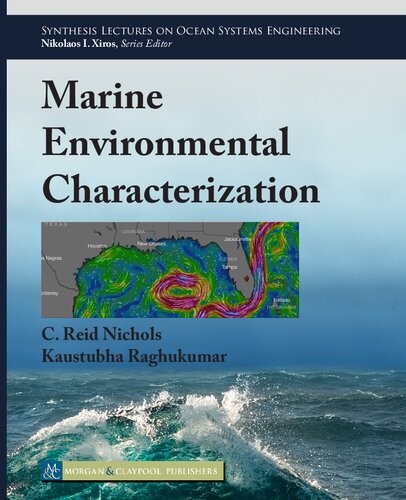

Most ebook files are in PDF format, so you can easily read them using various software such as Foxit Reader or directly on the Google Chrome browser.
Some ebook files are released by publishers in other formats such as .awz, .mobi, .epub, .fb2, etc. You may need to install specific software to read these formats on mobile/PC, such as Calibre.
Please read the tutorial at this link: https://ebookbell.com/faq
We offer FREE conversion to the popular formats you request; however, this may take some time. Therefore, right after payment, please email us, and we will try to provide the service as quickly as possible.
For some exceptional file formats or broken links (if any), please refrain from opening any disputes. Instead, email us first, and we will try to assist within a maximum of 6 hours.
EbookBell Team

4.3
48 reviewsThe use of environmental data to support science, technology, and marine operations has evolved dramatically owing to long-term ocean observatories, unmanned platforms, satellite and coastal remote sensing, data assimilative numerical models, and high-speed communications. Actionable environmental information is regularly produced and communicated from quality-controlled measurements and skillful forecasts. The characterization of complex oceanographic processes is more difficult compared to inland features because of the difficulty in obtaining observations from often remote and hazardous locations. Regardless, coastal and ocean engineering projects and operations require the collection and analysis of meteorological and oceanographic data to fill information gaps and the running of numerical models to characterize regions of interest. Data analytics are also essential to integrate disparate marine data from national archives, in situ sensors, imagery, and numerical models to meet project requirements. Holistic marine environmental characterization is essential for data-driven decision making across the science and engineering lifecycle (e.g., research, production, operations, end-of-life).
Many marine science and technology projects require the employment of an array of instruments and models to characterize spatially and temporally variable processes that may impact operations. Since certain environmental conditions will contribute to structural damage or operational disturbances, they are described using statistical parameters that have been standardized for engineering purposes. The statistical description should describe extreme conditions as well as long- and short-term variability. These data may also be used to verify and validate models and simulations. Environmental characterization covers the region where engineering projects or maritime operations take place. For vessels that operate across a variety of seaways, marine databases and models are essential to describe environmental conditions. Data, which are used for design and operations, must cover a sufficiently long time period to describe seasonal to sub-seasonal variations, multi-year, decadal, multi-decadal, and even climatological factors such as sea level rise, coastal winds, waves, and global ocean temperatures. Combined data types are essential for the computation of environmental loads for the region of interest. Typical factors include winds, waves, currents, and tides. Some regions may require consideration of biofouling, earthquakes, ice, salinity, soil conditions, temperature, tsunami, and visibility. Observations are also used for numerical forecasts, but errors may exist due to inexact physical assumptions and/or inaccurate initial data, which can cause errors to grow to unacceptable levels with increased forecasting times. Overall, marine environmental characterization tools, from observational data to numerical modeling, are critical to today's science, engineering, and marine operational disciplines.